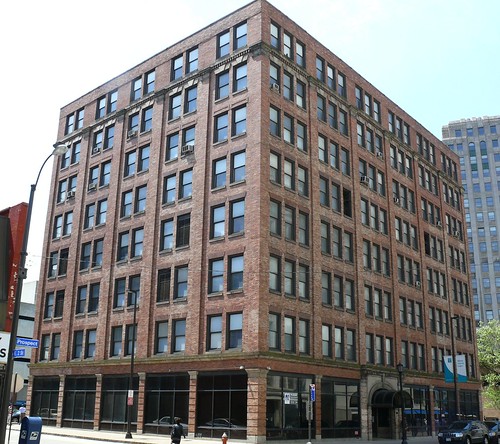 East Cleveland Mayor Gary Norton (pictured) and Cleveland Clinic CEO Toby Cosgrove announced today that the Clinic will give the city $8 million over five years to cushion the blow of losing its second-largest employer.
East Cleveland Mayor Gary Norton (pictured) and Cleveland Clinic CEO Toby Cosgrove announced today that the Clinic will give the city $8 million over five years to cushion the blow of losing its second-largest employer.The Clinic also agreed to help with one of East Cleveland’s biggest problems: vacant buildings. Not only will the Clinic demolish the hospital and give the land to the city, it’s also going to knock down a few extra buildings it doesn’t own: some apartments and offices on Euclid Avenue.
Now, Norton, 39, will have to convince East Clevelanders that the deal is worth giving up the fight. He’s already making the case.
“While most cities receive nothing when a hospital closes,” Norton said in a statement, “East Cleveland has worked with Cleveland Clinic to secure financial and other support which will ease our city’s financial pressure, prevent the facility from becoming an eyesore and help us aggressively pursue development opportunities.”
Meanwhile, Frank Jackson’s not giving up. Cleveland filed a federal lawsuit today to try to stop the Clinic from closing Huron’s trauma center, where Cleveland EMS takes 3,000 patients a year.
It’ll be worth watching how East Cleveland and Cleveland get along after this. The last time East Cleveland cut a deal in a big legal battle while Cleveland fought on, it hurt relations between the towns for years. In 1998, when East Cleveland’s Emmanuel Onunwor reached a settlement with the railroad CSX to allow increased train traffic, Cleveland’s Mike White lashed out. He killed talks about Cleveland taking over East Cleveland’s water system, delaying the takeover for a decade.
But Jackson is not as vindictive as White. He may also understand Norton’s position. East Cleveland gets $1 million a year in income taxes from Huron Hospital’s 800 employees. The city’s entire budget is only $26 million. Now Norton plugs that financial hole for a while and buys time to try to attract businesses to all that vacant land.
To read my Dec. 2009 profile of Norton, "Who Wants to Be Mayor of East Cleveland?", click here.













